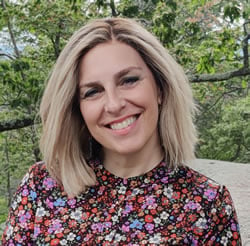
Dear Reader.
Basi Legani is the discourse of the Sixth Rebbe, Rabbi Yosef Yitzchak, released for his passing in 1950, and the first Chassidic discourse delivered by our Rebbe. It conveys the call of the hour for our generation.
Here are three points from this Chassidic discourse that I feel are so crucial for each of us to understand and convey to ourselves, our friends and our children, over and over, until we finally absorb their message.
1) Each of us can come close to G‑d; it is up to us.
How many of us feel inadequate and incapable? How often does our inner voice negate our powers and tell us nonstop all the things we “can’t” accomplish. But G‑d tells us that He believes in us. He created an imperfect world, specifically so that we can be His partners in making it better.
The Torah teaches: “Speak to the children of Israel and say to them: When one of you wants to bring an offering to the L‑rd, the offering must be taken from the cattle, sheep or goats”(Leviticus 1:2).
This is how the verse would read; however, in Hebrew, the sentence wording is unusual. Adam ki yakriv mikem—the word yakriv has a double meaning: to offer an offering, and also to come close. The word mikem is put in an unusual place. Rather than “when one of you wants to come close,” it reads, “when one wants to come close to the L‑rd, it is from you … ”
The possibility and responsibility for a close connection with G‑d lies within each of us. We may wonder, “How can I approach G‑d?” We may have acted improperly, and we may feel we created a distance between us and G‑d. But the Torah assures us: Your nearness to G‑d is all from you; it depends only on you. No bounds, blocks or obstacles can ever prevent you from coming close to G‑d. It just needs to be something that you desire.
2) We each have a unique way of coming close to G‑d.
After stating that our offering is to be brought “from the cattle,” the Torah lists the types of animals that can to be offered: “cattle, sheep or goats.”
The Torah is teaching that each of us has our own unique offering that needs to be consumed by our personal Divine fire.
What do you choose to sacrifice … fears, vulnerabilities, temptations, negative character traits, blame, past traumas? What is preventing you from reaching your best self?
3) Find your passion and direct it positively.
“No person commits a sin unless a passion of folly (shtus) enters him.” Rav Shmuel bar Rav Yitzchak would dance exuberantly to rejoice with the Torah. Though some of his colleagues felt his behavior was undignified, the Talmud praises him.
The best way to fight negativity is by being so busy using our talents productively. Are you an artist, a writer, an activist, a dancer, a reader? Don’t negate your passions; direct them to bring more G‑dliness to our world.
Chana Weisberg
Editor, TJW



